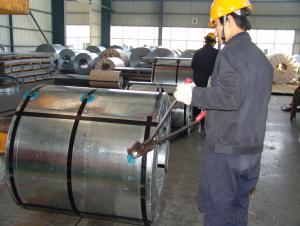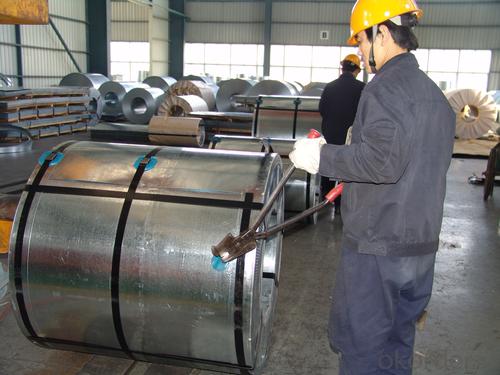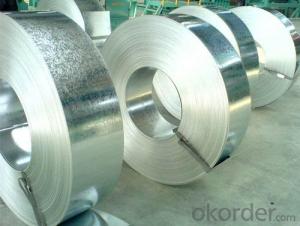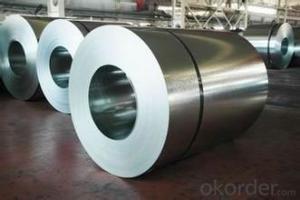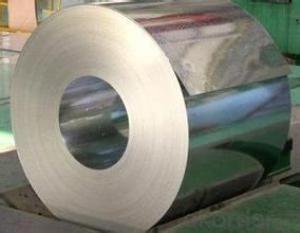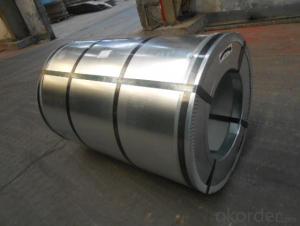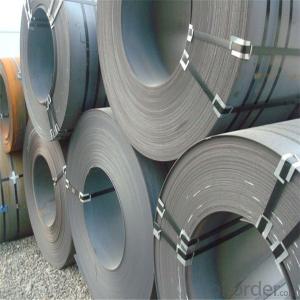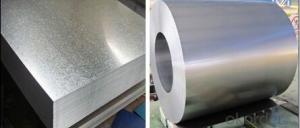Hot-Dip Galvanized Steel of Best Quality
- Loading Port:
- Tianjin
- Payment Terms:
- TT OR LC
- Min Order Qty:
- 50 m.t.
- Supply Capability:
- 8000 m.t./month
OKorder Service Pledge
OKorder Financial Service
You Might Also Like
Hot-dip Zinc Coating Steel Building Roof Walls
1.Structure of Hot-Dip Galvanized Steel Sheet Description:
Hot-dip galvanized steel coils are available with a pure zinc coating through the hot-dip galvanizing process. It offers the economy, strength and formability of steel combined with the corrosion resistance of zinc. The hot-dip process is the process by which steel gets coated in layers of zinc to protect against rust. It is especially useful for countless outdoor and industrial applications. Production of cold formed corrugated sheets and profiles for roofing, cladding, decking, tiles, sandwich walls, rainwater protective systems, air conditioning duct as well as electrical appliances and engineering.
2.Main Features of the Hot-Dip Galvanized Steel Sheet:
• Excellent process capability
• Smooth and flat surface
• Workability, durability
• Excellent anticorrosive property
• High strength
• Good formability
• Good visual effect
3.Hot-Dip Galvanized Steel Sheet Images
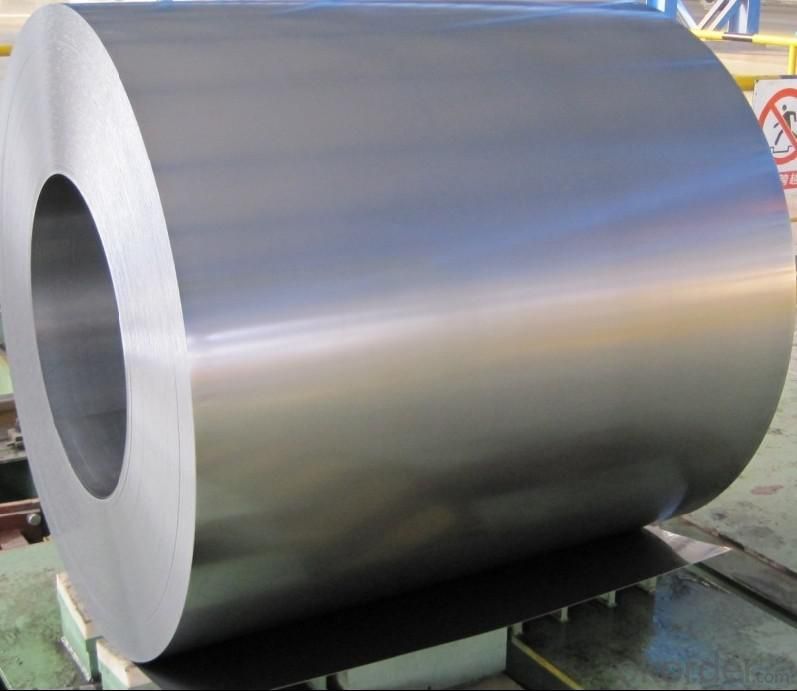
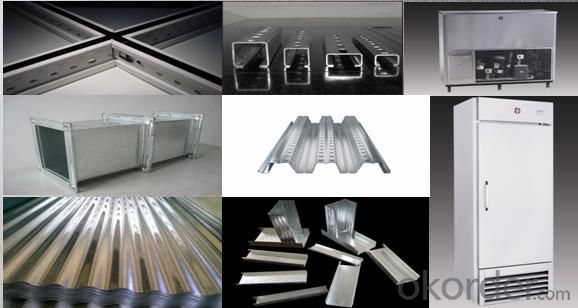
4.Hot-Dip Galvanized Steel Sheet Specification
Standard: ASTM, JIS,EN
Grade: CS, DX51D+Z,SGCC, SS 230~550,S220GD+Z~S550GD+Z, SGC340~SGC570
Thickness: 0.1mm~5mm
Width: max 2000mm
Coil weight:3-12 MT
Coil ID:508/610mm
Surface structure: zero spangle, regular spangle or minimum spangle
Surface treatment: Chromate treatment, Oiled/dry, skinpassed/non-skinpassed
Packing: Standard seaworthy export package
Technology test results:

5.FAQ of Hot-Dip Galvanized Steel Sheet
We have organized several common questions for our clients,may help you sincerely:
1.How about your company?
A world class manufacturer & supplier of castings forging in carbon steel and alloy steel,is one of the large-scale professional investment casting production bases in China,consisting of both casting foundry forging and machining factory. Annually more than 8000 tons Precision casting and forging parts are exported to markets in Europe,America and Japan. OEM casting and forging service available according to customer’s requirements.
2.How to guarantee the quality of the products?
We have established the international advanced quality management system,every link from raw material to final product we have strict quality test;We resolutely put an end to unqualified products flowing into the market. At the same time, we will provide necessary follow-up service assurance.
3. How long can we receive the product after purchase?
Usually within thirty working days after receiving buyer’s advance payment or LC. We will arrange the factory manufacturing as soon as possible. The cargo readiness usually takes 15-30 days, but the shipment will depend on the vessel situation.
- Q: Can steel coils be coated with silicon?
- Yes, steel coils can be coated with silicon.
- Q: What are the common size limitations for steel coil production?
- The common size limitations for steel coil production depend on various factors such as the type of steel, manufacturing equipment, and transportation constraints. However, generally speaking, steel coils are typically produced within a range of widths between 600mm to 2,000mm, with thicknesses ranging from 0.2mm to 25mm. The maximum weight of a steel coil is usually around 25 metric tons, although this can vary depending on the specific production facility and transportation capabilities.
- Q: i got the belly button ring from icing and its surgical steel are they the same things?
- yes they are same kind of steel
- Q: When i was 15 i got caught steeling at Super A yes i know i cant believe it. They didnt call the cops or anything they released me to my aunt they took my name and adress and everythimg they said it wouldnt be on my record. But I'm not so sure. Will it be on my record if they didn't call the cops?i live in california. Is there any way i can check my record?
- Steeling? What's that? Did you take a piece of steel and weld it? I am confused?
- Q: Can steel coils be coated with scratch-resistant materials?
- Yes, steel coils can be coated with scratch-resistant materials. These coatings are typically applied to the surface of the steel coils to enhance their durability and protect them from scratches and abrasions.
- Q: Can steel coils be stored in a corrosive environment?
- No, steel coils should not be stored in a corrosive environment as it can lead to the degradation of the steel surface and compromise its structural integrity.
- Q: What are the factors that affect the price of steel coils?
- The factors that affect the price of steel coils include supply and demand dynamics, fluctuations in raw material costs (such as iron ore and coal), changes in energy prices, market competition, import and export regulations, currency exchange rates, and overall economic conditions.
- Q: Does a magnet stick to galvinied steel?
- I've welded galvanized steel before and the fumes were not nice. He should be okay, but stay in a ventilated place with a fan blowing fresh air on his face and try brushing some of the coating off with a wire brush before welding.
- Q: How do steel coils differ in terms of size and weight?
- The size and weight of steel coils can vary greatly depending on their intended use and production process. When it comes to size, a steel coil is typically measured by its outer diameter, inner diameter, and width. The outer diameter refers to the total diameter of the coil, while the inner diameter refers to the diameter of the hollow center. The width, on the other hand, is the distance between the two flat sides. In terms of weight, steel coils can range from a few hundred pounds to several tons. The weight primarily depends on the size and type of steel used. Coils made from high-strength steel are generally heavier because they have a higher density. On the contrary, coils made from lower-grade steel can be lighter. The size and weight of steel coils play a crucial role in their transportability and handling. Smaller and lighter coils are easier to handle and transport, making them suitable for applications that require maneuverability. On the flip side, larger and heavier coils are commonly used in industries that prioritize strength and durability, like construction and automotive manufacturing. All in all, steel coils come in various sizes and weights, allowing for customization and meeting specific requirements in different industries.
- Q: I have an old classical guitar, which uses nylon strings. ive never really liked the sound produced by the nylon, so im curious if you can use a classical guitar with acoustic guitar steel strings. thanks!
- NO ! NO! NO! Do not put steel strings on a classical guitar!! The increased tension can actually damage the guitar by causing the top to warp and can eventually pull the bridge right off of the guitar! I have seen it happen more than once! Ignore the other post, they are wrong! Classical guitars are designed to use nylon strings only!
Send your message to us
Hot-Dip Galvanized Steel of Best Quality
- Loading Port:
- Tianjin
- Payment Terms:
- TT OR LC
- Min Order Qty:
- 50 m.t.
- Supply Capability:
- 8000 m.t./month
OKorder Service Pledge
OKorder Financial Service
Similar products
Hot products
Hot Searches
Related keywords
